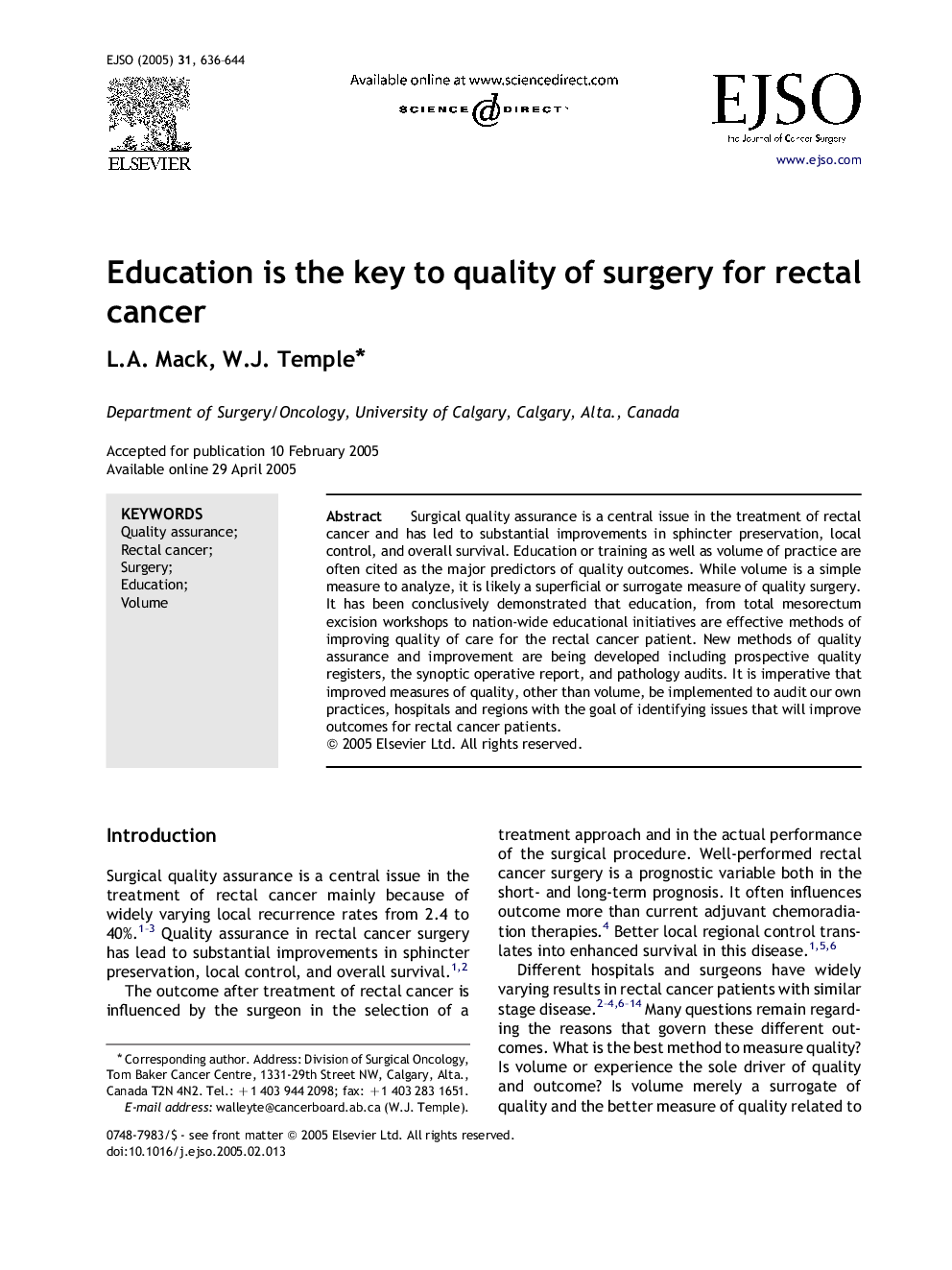| Article ID | Journal | Published Year | Pages | File Type |
|---|---|---|---|---|
| 10070538 | European Journal of Surgical Oncology (EJSO) | 2005 | 9 Pages |
Abstract
Surgical quality assurance is a central issue in the treatment of rectal cancer and has led to substantial improvements in sphincter preservation, local control, and overall survival. Education or training as well as volume of practice are often cited as the major predictors of quality outcomes. While volume is a simple measure to analyze, it is likely a superficial or surrogate measure of quality surgery. It has been conclusively demonstrated that education, from total mesorectum excision workshops to nation-wide educational initiatives are effective methods of improving quality of care for the rectal cancer patient. New methods of quality assurance and improvement are being developed including prospective quality registers, the synoptic operative report, and pathology audits. It is imperative that improved measures of quality, other than volume, be implemented to audit our own practices, hospitals and regions with the goal of identifying issues that will improve outcomes for rectal cancer patients.
Related Topics
Health Sciences
Medicine and Dentistry
Oncology
Authors
L.A. Mack, W.J. Temple,
